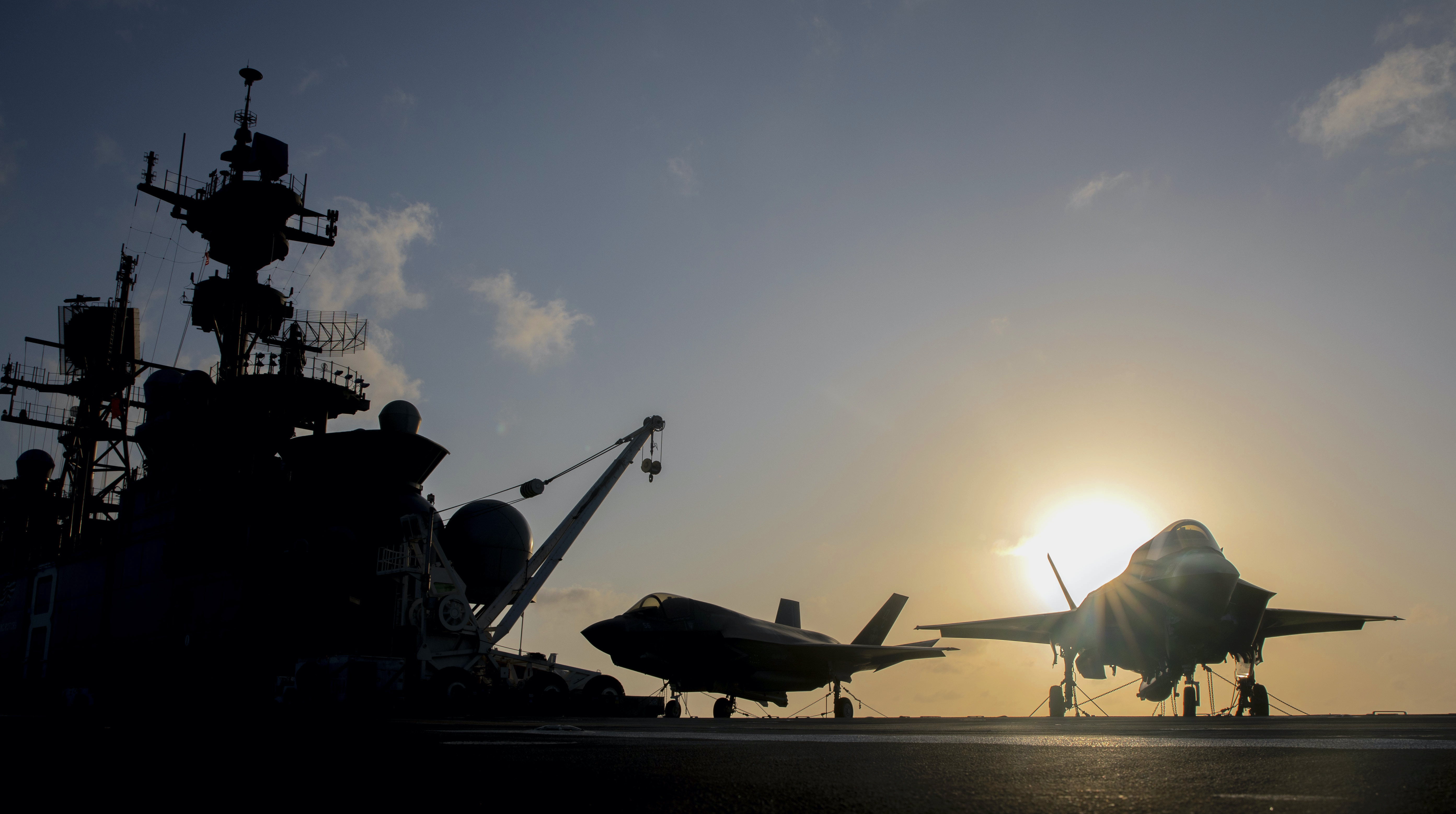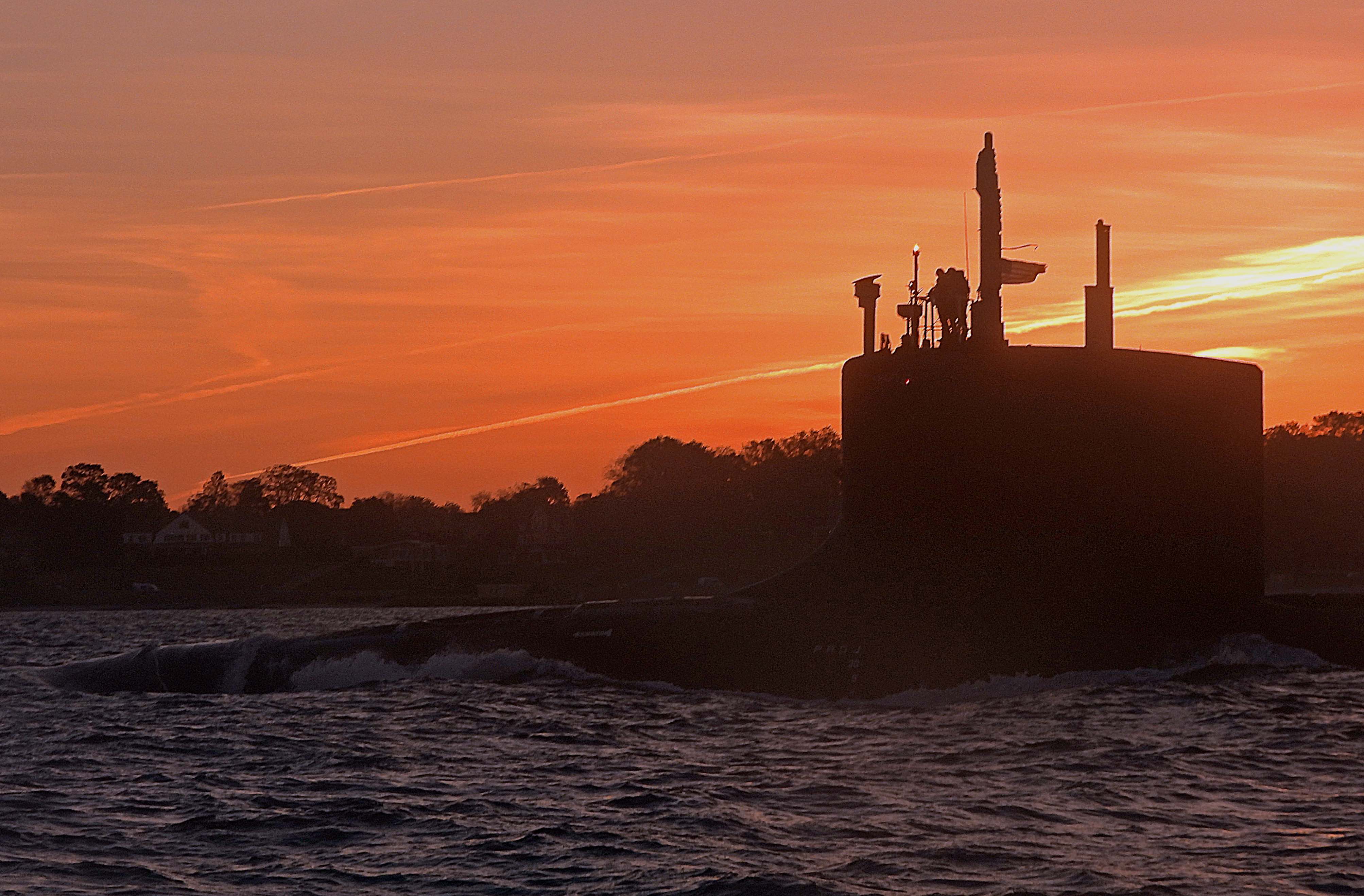
“We’ve got to seriously scrub” programs like the F-35 Lightning II Joint Strike Fighter in Congress instead of rewarding “people for failure, not results” in developing new weapons systems, the chairman of the House Armed Services Committee said Friday.
Speaking in a Brookings Institution online forum, Rep. Adam Smith (D-Wash.) said “there’s not an easy way out of” a program like the F-35 even despite his concerns on cost and performance. “It all comes down to not putting all your eggs in one basket,” as he said happened with the fifth-generation fighter.
Smith said he wasn’t saying the United States and its allies did not need modernized fighter/attack aircraft. “I want to stop throwing money down that rat-hole,” he said. Instead of buying more F-35s, he said the Air Force’s F-15EX could provide a model for other services to follow in adding capacity to their air fleets without retooling production lines already developed for foreign military sales.
Following his remarks on the F-35, Smith said “don’t even get me started on the 500-ship Navy.” He said the number, which included unmanned vessels, originally came from a survey of combatant commanders on what they believed they needed for their areas of responsibility.
He compared it to “asking Cookie Monster how many cookies you should have in your cookie store. … Is there ever a time we’re going [to satisfy] combatant commanders on what they want? No. There’s a finite amount of money.”
Smith added, “tell them ‘this is your budget, make it work.’”
Smith said “let’s just spend the god damn money effectively” and not become obsessed with numbers of ships in the fleet or the overall size of the Pentagon budget.
“Substantively, [the size of the budget] is about the least important thing we should talk about,” he said.

Looking at his colleagues in Congress who push for funding within the Pentagon budget based on parochial priorities, Smith said, “it’s not their job to push as much money as possible into their district.” He said he understood the urge, noting “it’s politics,” but said “we don’t have the money to waste” on home district pet projects.
Smith emphasized his oft-cited argument that it’s better to “focus on capability” than numbers. In his view, that included looking into end-strength numbers as a way of freeing more money for future investment. “What do we really need going forward? Having survivable platforms,” he said.
“China obviously is the big issue,” Smith said in his opening remarks and throughout the discussion. He expressed concern about stumbling into a Cold War with China as Washington did with the Soviet Union.
“President Biden doesn’t have any illusions about China” as an autocratic and ambitious power. Smith said the approach to Beijing with allies and partners should be one that “embraces containment and deterrence” but makes clear “we would impose a cost” on China for aggression.

He expressed support for the Pacific and European Deterrence Initiatives as effective ways to reassure allies of America’s commitment to them in the face of Chinese and Russian bullying and threats, and deter possible aggression.
Earlier, he cited former President Richard Nixon’s meetings with Chinese leaders Mao Zedong and Zhou Enlai, and former President Ronald Reagan’s meetings with Soviet Union President Mikhail Gorbachev as effective means to keeping a cold war from becoming a hot one.
As for North Korea, Smith said, “things are calmer on the peninsula” now than they were in 2017 following Pyongyang’s extensive round of nuclear weapons and missile testing. “We need to contain” Pyongyang by ensuring that South Korea’s forces are ready and capable. “If we want to talk along the way, talk,” he said.
On nuclear modernization, Smith said “the submarine is the most important,” but his immediate spending priorities would be on its command and control and resources needed “to build any weapons.” The National Nuclear Security Administration, a quasi-independent agency in the Department of Energy, drew congressional attention last year over the pace of its modernization programs and the condition of its facilities.
Smith rejected congressional calls to raise the nuclear stockpile to 5,000 weapons and spend $1.5 trillion on nuclear modernization to counter China’s expected addition of 200 new weapons to its current 200.
“We must have a nuclear deterrent,” Smith said. “The technology is not going away.”





